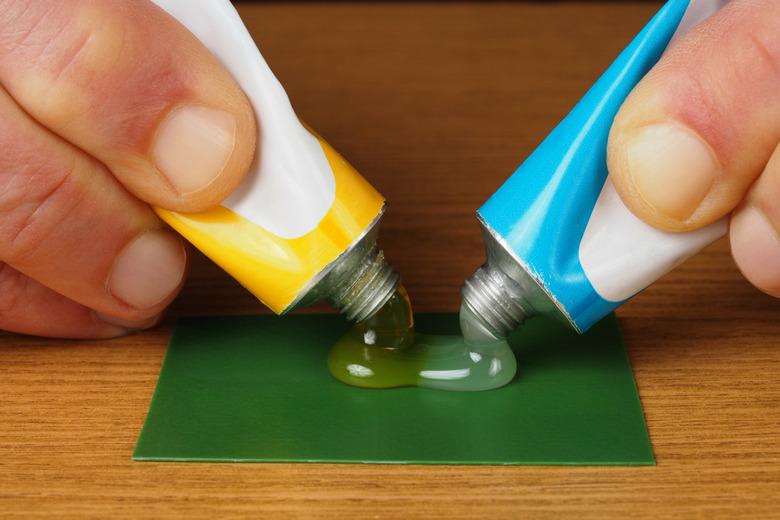What Is The Difference Between Epoxy & Super Glue?
Epoxy and Super Glue are popular names for products that cover a broad range of adhesives used in home and industry. Each has a specific chemical composition and best recommended uses. They have a few applications in common, but are most effective when used for their intended purpose.
What is the Difference?
What is the Difference?
Epoxy is a compound made from two parts that the user must combine: a resin and a hardener. The user then has a specific time, based on the package formulation, in which to use the glue before it hardens. Super Glue is a single component made from cyanoacrylate that hardens rapidly with exposure to moisture in the air.
Properties
Properties
Both form a very strong bond. Super Glue, however, has very low shear strength which means that the parts bonded will resist direct pulling but not off-angle stress. Epoxy, on the other hand, has tremendous structural strength. Epoxy is better at filling voids between parts. Some varieties of Super Glue include additives to fill small voids.
Uses
Uses
Epoxy, in its many formulations, is used as an adhesive, a coating for metal and composites, insulation of electronics, model making and many industrial applications. Super Glue is utilized on a much smaller scale, but in applications that vary from surgery to small parts assembly, and it is even used as a wood finish.
Clean Up
Clean Up
Epoxy, before it hardens, may be removed with acetone or white vinegar. Once it hardens it is very difficult, if not impossible, to remove without damage to the surface it was applied to. Super Glue can be removed, in either liquid or solid state, with acetone (nail polish remover) or gamma-butyrolactone (GBL). GBL may be preferable because it is less toxic.
Health Warnings
Health Warnings
Use both materials in well-ventilated areas. For added safety, wear rubber gloves and eye protection when working with these chemicals. Some users of epoxy can develop an allergic reaction to the hardener. Super Glue is an eye, nose, and throat irritant that will bond with tissue almost immediately. In addition it can combust spontaneously when it comes into contact with cotton or wool.
